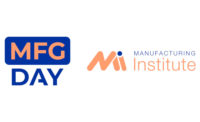The crisis is exacerbated by the inadequate number of underrepresented minority students who are prepared to study engineering and technology at the college level, says the NACME. Ross Wiener, principal partner, The Education Trust, says, "Only 32% of American high school students will graduate from high school with the skills they need to succeed in college or work. Only one of five students of color will leave high school ready for college."
"Minority students represent a significant resource pool for the engineering and technology workforce," says Dr. John Brooks Slaughter, NACME's president and chief executive officer. "Of 659,000 minority high school graduates in 2003, only 26,000 had the requisite preparation in science and mathematics to qualify for admission to study engineering or technology at the college level."
NACME has programs aimed directly at addressing the two major elements of this national crisis: scholarships and pre-engineering studies.
For more than 30 years, NACME has focused the nation's efforts to increase the diversity of the engineering workforce in America. Corporations, foundations, universities and individuals have contributed more than $150 million in cash, goods and services that have enabled NACME to support more than 20,000 minority engineering students at 160 universities across the nation. Over the next three years, NACME plans to more than double the number of minority students receiving financial support from 750 to more than 1,600 per year.
Recognizing that an increase in college scholarships alone will not substantially affect the number of minority students entering the engineering workforce, NACME is expanding its efforts in the nation's middle and high school systems. By partnering with organizations having proven expertise in school reform, and bringing to the table its resources and affiliations with corporations and universities, NACME will initiate programs to enrich the pre-college science, math, engineering and technology curriculum at select urban schools. This will result in an increase in the number of students graduating from high school with sufficient course work in mathematics and science, and applying for and enrolling in a college engineering program.
Additionally, NACME plans to mount an awareness campaign that will emphasize the important role community colleges play in preparing minority students to attain a B.S. degree in engineering. This will include providing scholarships to support students who choose two-year colleges as their initial post-secondary education experience and enhancing articulation agreements between its partner universities and community colleges.
NACME's goal is to increase the number of underrepresented minority students entering and graduating from engineering schools so that the graduating class has a demographic makeup consistent with the population at large.
More than 200 leaders from universities, corporations, government, foundations and other groups participated in NACME's Symposium.


